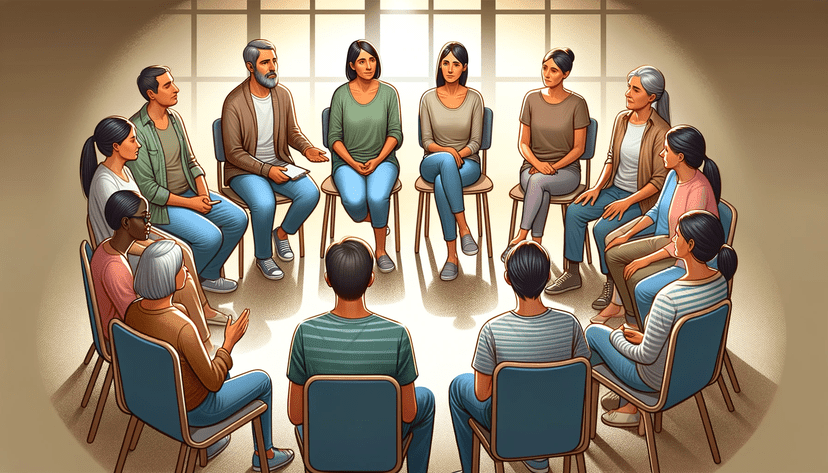The Emotional Journey: Reflecting on Life After Bariatric Surgery

Initial Emotional Adjustments Post-Surgery
As a metabolic treatment procedure mainly used for severe obesity, bariatric surgery fundamentally alters not just physical aspects but also brings about significant emotional adjustments for the patients. This transition period, fraught with a mix of emotions and psychological challenges, often leaves the patients navigating a whirlpool of sentiments that can range from relief and excitement to anxiety and fear of the unknown.
Navigating the Rollercoaster of Emotions
The immediate aftermath of bariatric surgery can emerge as a rollercoaster of emotions for many patients. The anticipated weight loss that follows the surgical procedure often brings a sense of relief and excitement. The tangible, often rapid, physical changes serve as a reinforcement for the difficult decision they've made - a decision that often comes after a long period of self-reflection and combatting weight-related health issues.
However, this relief and joy can also intermingle with anxiety and fear of the unknown. The drastic changes in lifestyle that the surgery necessitates - such as a new dietary regimen, exercise regimen, and attention to overall well-being - can feel overwhelming. Patients may find themselves struggling with these changes and fearing possible future complications.
Adjusting to Rapid Physical Changes
Bariatric surgery results in rapid physical changes that can take some time for patients to adjust to. These changes, along with the new routines to maintain weight loss, primarily include a radical change in eating habits, regular physical activity, and frequently monitoring their health parameters.
Patients need to adapt not only the physical changes but also to their perception of themselves. Considering this, it becomes important to look at bariatric surgery not just as a physical transformation, but as a psychological journey that requires preparedness and a strong support system.
Dealing with Expectations vs. Reality
In the emotional journey that follows bariatric surgery, perhaps the most challenging aspect is reconciling the disparity between expectation and reality. While the reality of immediate weight loss can bring considerable joy initially, the process of maintaining that weight loss over the long term may not always align with initial expectations. This can lead to feelings of disappointment, stress, and in some instances, a resurgence of old habits.
Furthermore, it's crucial to note that while bariatric surgery is a powerful tool for weight loss, it is not a 'magic cure'. The actual process involves hard work, commitment, and lifestyle change from the patient's end. Yet, resolute patience and persistence can enable patients to handle these challenges and journey toward a healthier life with confidence.
The emotional journey after bariatric surgery engenders profound psychological shifts. The changes, though overwhelming initially, ultimately guide patients towards healthier habits, renewed self-perception, and improved overall well-being. As such, it's not just a physical transformation but an emotional metamorphosis - a ceaseless evolution toward a healthier, happier self.
Mid-Term Emotional and Psychological Changes
The period following bariatric surgery is often a time of deep emotional and psychological change. As patients move further away from their surgery date, they enter a new phase of coping and adapting. This period becomes a watershed moment, marking the definitive transition from immediate post-surgery experiences to long-term lifestyle adaptations.
Coping with Weight Fluctuations and Plateaus
In this stage, it's common for patients to experience weight fluctuations or reach plateaus. The initial rapid weight loss can start slowing down, and sometimes, there might even be a small amount of weight regain. These events can precipitate emotional turmoil and psychological distress. The feeling, often, can be likened to a roller-coaster ride as patients balance themselves between the joy of having lost weight and the fear of regaining it.
Yet, it's crucial to understand that these plateaus or minor weight regains are often part of the normal process of body weight regulation. Maintaining a stable weight is different than losing weight in terms of what the body must do metabolically, and these changes can take some time. The focus should be on maintaining consistent healthy habits, such as regular exercise, a balanced diet, and timely sleep.
Evolving Relationships with Food and Body
Concurrently, patients also start experiencing an evolving relationship with food and their bodies. It's not just about weight loss; it's about redefining one's relationship with food and embracing a new self-image. For many, food earlier was a source of comfort or a means to cope with stress. Now, food transitions to a source of nourishment and heath.
Similarly, as the body shrinks, the self-perception evolves. How one feels about oneself, views their body, and how they believe they are perceived changes. It's a profound shift, sometimes positive, bringing in newfound confidence, and at other times challenging, stirring up insecurities and anxieties.
The Impact on Personal Relationships and Social Life
All these changes can significantly impact personal relationships and social life. Changes in the physical appearance can sometimes lead to changes in the dynamics of personal relationships. The alterations in lifestyle can impact interactions and participation in social activities. For instance, many patients find themselves grappling with friends or family who find it hard to adapt to their new lifestyle choices. The social gatherings centered around food can become tricky, demanding a new level of negotiation and self-advocacy.
The journey after bariatric surgery is undeniably one abundant with emotional and psychological transformations. It's a path of self-discovery, resilience, and adaptation. The changes may seem overwhelming, yet with the right support and mindset, the challenges can be used to foster personal growth, paving the way for a healthier life.
Remember, the ultimate goal is not just about losing weight but about gaining health, self-love, and a zest for life. It's about a sustainable lifestyle change that creates a balance and harmony between the body and mind—a journey that transform lives, not just bodies.
Long-Term Emotional Well-being and Support
The psychological journey after bariatric surgery is as crucial as the physical one. In fact, maintaining long-term emotional and psychological well-being is of utmost importance when it comes to postoperative success for bariatric patients. We can help ourselves by utilizing ongoing support, establishing dependable strategies for potential setbacks, and fostering an empowering mindset. Let's delve deeper into these factors.
Finding and Leveraging Support Networks
One should not overlook the significance of robust support networks in the emotional recovery process post-surgery. Irrespective of whether it's from friends, family, or support groups, this moral boost can act as a strong pillar of strength in your journey.
For instance, joining bariatric support groups can be particularly beneficial. This presents an opportunity to interact with individuals who are going through or have undergone a similar journey, and so, can provide unique insights and encouragement. Such groups can be found both online and offline.
Another constructive avenue of support is therapy. Therapists, specifically those who specialize in bariatric treatment, can address emotional aspects of the surgery that others may not understand. Harnessing the potential of these support networks can contribute significantly to your path of recovery.
Strategies for Sustaining Emotional Health
Emotional health is a long-term undertaking. It involves ongoing, conscious decisions that promote coping strategies and resilience. Here are some strategies to sustain emotional health after bariatric surgery:
-
Be kind to yourself. Recognize that setbacks can happen and that's okay. Each day is a new day to strive for better.
-
Prioritize self-care. Regular physical activity, balanced meals, adequate sleep, and time for relaxation are crucial components of emotional well-being.
-
Stay connected with your support network. Maintain frequent and open communication about your physical and emotional status with your supportive allies.
-
Consult with a mental health professional. Regular therapy sessions can provide specific strategies and tools to manage any perceptual or emotional challenges.
Reflecting on Personal Growth and Changes
Finally, there is immense value in taking a moment to reflect on your own personal growth and changes post-surgery. Recognizing the milestones you've achieved, both physically and emotionally, and the obstacles you've overcome in your journey, can help foster a positive mindset. You can journal about your experiences and learnings, the emotions you've navigated through, and your growth, over time. This act of consciously recognizing your development helps in building emotional resilience.
There's a transformative journey post-bariatric surgery that goes beyond physical changes. By finding and leveraging support networks, being vigilant about maintaining emotional health, and reflecting on your personal growth, the journey can be shaped into a positive, empowering experience.
In Summary
Bariatric surgery though designed as a metabolic treatment procedure for severe obesity, demands major physical and emotional adjustments from the patients. The surgery incites an emotional rollercoaster, with varied feelings, and can necessitate drastic lifestyle alterations, resulting in rapid physical changes.
Balancing expectations and reality can pose a challenge especially as the maintenance of weight loss may not always match the originial expectations. In the mid-term, the stage of coping and adapting is crucial, as patients may experience weight fluctuations or plateaus. It's important to note that these are part of the process of the body’s weight regulation, and maintaining consistent healthy habits is crucial throughout.
The relationship with food also changes overtime, shifting from being a source of comfort to a means of nourishment. Personal relationships and social dynamics also tend to evolve with these changes. Embracing the path of self-discovery, resilience, and adaptation is vital, with an emphasis on sustainable lifestyle changes rather than just weight loss.
For long-term emotional well-being and support, post-surgery, establishing a robust support network, specific strategies for potential setbacks, and an empowering mindset is vital.
When it comes to implementing this knowledge and advice, consider these steps:
-
Be mentally prepared for a variety of emotions and changes post-surgery. Acknowledge these feelings and challenges openly and honestly.
-
Embrace the lifestyle changes and maintain consistent and healthy habits, even when weight fluctuations or plateaus occur.
-
Modify your relationship with food, seeing it as a source of nutrition and health rather than a coping mechanism.
-
Understand that dynamics of personal relationships may change, but remember, the surgery is for your health and well-being.
-
Rely on your support network of friends, families, support groups, and therapists, post-surgery.
-
Work on sustaining emotional health through conscious decisions and strategies that promote a healthier lifestyle and coping mechanism.
-
Take time to reflect on your personal growth and changes, both physically and emotionally post-surgery. Recognizing your growth and development can build emotional resilience.
Keep in mind that you are striving not just for weight loss, but for overall health, self-love, and a zest for life through sustainable lifestyle changes.










